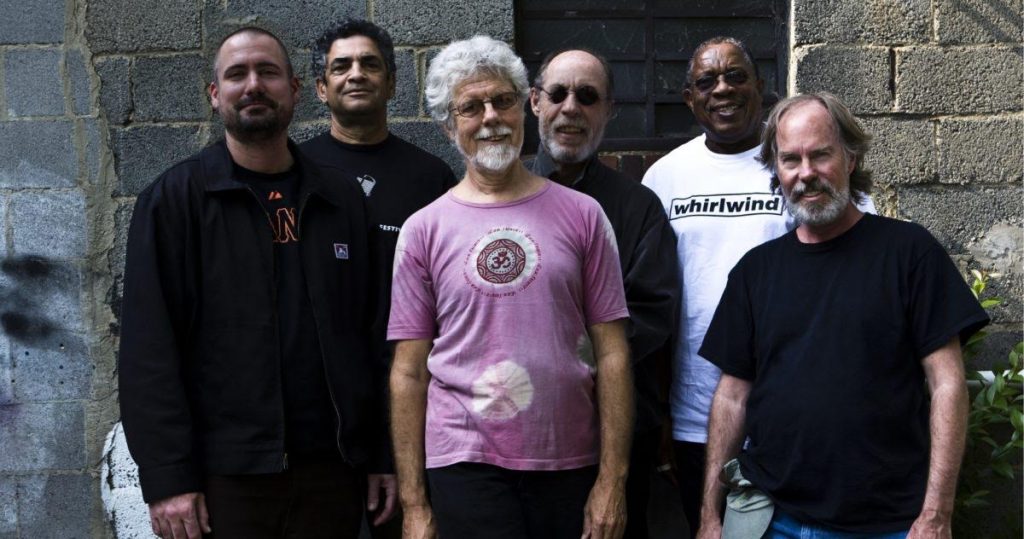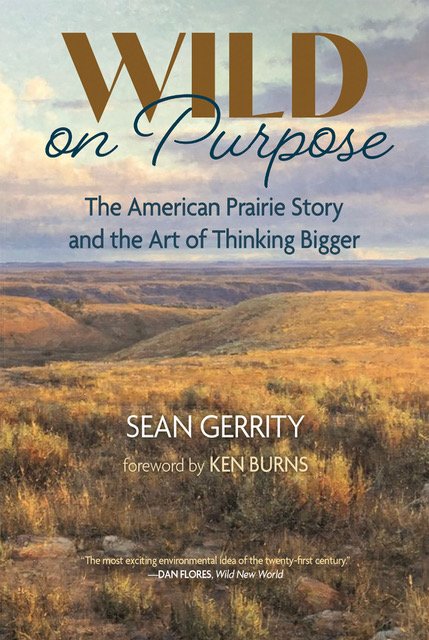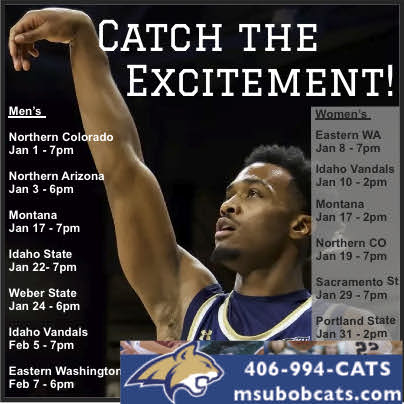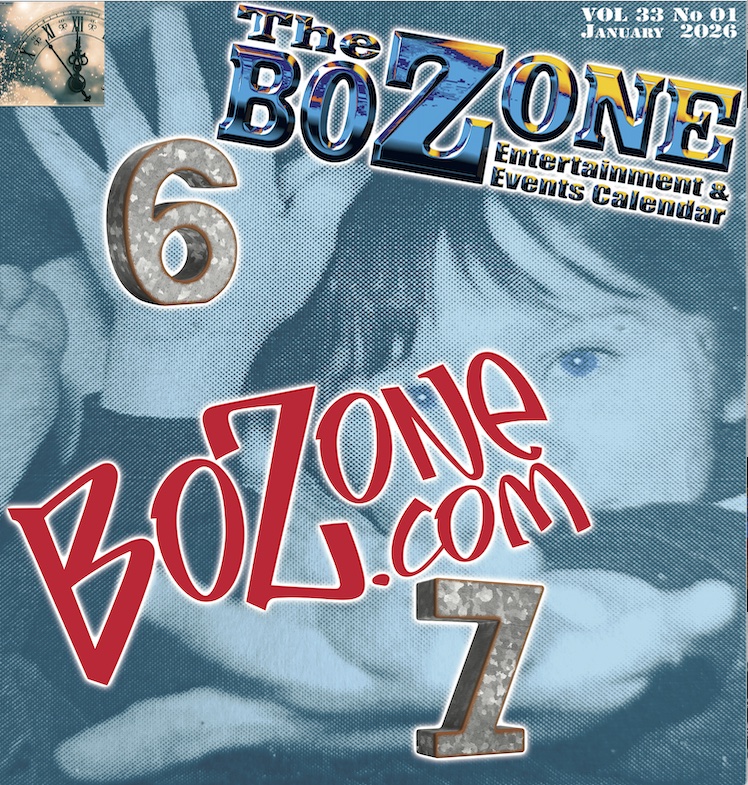Paradise Valley’s Bill Payne gears up for Little Feat 50th Anniversary Tour
by Skip Anderson
Texas-born pianist Bill Payne co-founded the groundbreaking rock band Little Feat in 1969. But his impact on music goes far beyond penning the American classic, “Oh Atlanta.” Since launching his career, Payne has performed with, co-written with, recorded with, or written songs performed by towering figures in music, including J.J. Cale, Gregg Allman, Emmylou Harris, Pink Floyd, Linda Ronstadt, Jackson Browne, B.B. King, Willie Nelson, Carly Simon, James Taylor, Jeff Bridges, Eric Clapton, and Bonnie Raitt. Without hyperbole, a comprehensive list of Payne’s collaborators could very well fill this page.
This spring, he will embark upon Little Feat’s 50th Anniversary Tour, which will bring him and his bandmates to The Wilma in Missoula June 3rd. And, this summer he’ll join the Doobie Brothers on tour – something he’s done regularly since 2015. But the relationship dates to the band’s earliest successes. Payne played keyboard on several of the Doobie’s landmark recordings, including “What a Fool Believes,” just as he did on Bob Seger’s “Against the Wind,” “Hollywood Nights,” and “Like a Rock.” In fact, Payne has elevated scores of hits for dozens of heavy-hitting artists with his distinctive piano-playing style that draws from blues, jazz, and rock styles.
Payne is the lone survivor of Little Feat’s original lineup, the last man standing in a band that has released 16 studio albums and charted songs on the Billboard 200 in four different decades. He describes Lowell George, Little Feat’s cofounder who died in 1979 of an accidental overdose, as “very complicated.” Turns out, his relationship with George is very complicated as well, even 40 years after his former bandmate’s death.
RZ: You’re a native Texan who started a rock band in L.A. who is famous for, among other things, writing a song about Atlanta. You turned 70 last month, just as you’re about to embark on Little Feat’s 50th anniversary tour this spring, and you’ll be on tour playing keyboard for the Doobie brothers this summer. Are you a restless spirit, or am I reading too much into that?
BP: I think I’m lucky, that’s what it is. It’s one thing to have all these things thrown at you and it’s another to have the energy to do them. And thankfully I do. But, yeah, I was born in Texas, raised in California, which is a component that’s missing there. I’m also a guy that plays New Orleans music.
RZ: Does your wife ever point out that you could be on a fishing boat in the Caribbean instead of touring?
BP: Well, we were just down in Jamaica in the Caribbean for Little Feat’s 17th soirée. We had Larry Campbell and Teresa Williams down there, too. Anders Osborne from New Orleans, and then Lucinda Williams, the Midnight Ramble Band, and Vince Herman from Leftover Salmon, too. I was in Leftover Salmon for a few years. He joined us for this party as well. I guess what I’m saying is it’s a gift to get to do these things. I get to have the vacation and I get to play music at night.
RZ: The awkward silence you hear after you’re done talking is due to my fingers catching up to you on the keyboard.
BP: I get it, man. I’m a little bit of writer, too. If you visit my website, you’ll see some photography and also see my writing. The most recent thing I wrote was about a friend of mine, Dan Sullivan, who, with his wife Carole, run the Mustang Fresh Food in Livingston [Montana]. The piece is called “Honorable Resistance.” Dan’s involved with saving the grizzly bear along with Doug Peacock. It was really the thrust of that movement. And I wanted to know how he became an activist.
RZ: I hope you’re also writing a memoir of your trials, travels, and your life in music.
BP: Well, I started it many years ago. But I [want to] write something and not hurt people, because when you know the inside dope on a lot of things [pauses] I don’t want to write that kind of book. I’ve got an interesting story to tell. And that story is still continuing. And particularly so this year because it’s Little Feat’s 50th anniversary. And, I still play with the Doobie Brothers and I’m doing other things in between. Just a few weeks ago I was back in Woodstock, New York at Larry Campbell and Teresa Williams’ home, and I played on five tracks for Kinky Friedman’s record.
RZ: I was in Nashville a few years ago covering John Prine, Jason Isbell, and Amanda Shires at the Station Inn. Larry and Teresa opened the show. This was an intimate venue and hundreds of folks were lined up outside hoping to get in. About halfway through their set, Larry just screams through this guitar solo. I mean, it was special, and the room absolutely erupted. So did the people lined up outside. You could hear them through the wall.
BP: When we were in Jamaica, Larry sat in on “Oh Atlanta.” I waited until the very end of the song and pointed at him and boy, he took off! And it was the same kind of thing – just like, wow! I pinch myself every now and then that I get the chance to play with these amazing people. That was one of the things [Little Feat cofounder Lowell George] and I hoped would transpire out of us putting the band together. We figured we probably wouldn’t be a household name, but we felt we would resonate within the musical community. And that would allow us to play with a lot of great people. And that’s exactly what, what happened and is still happening.

Bill Payne (far right)
RZ: I’m not suggesting it’s time for retirement, by any stretch. It’s just the age of 70 lends itself to taking a long-lens view on life. When you do retire, do you anticipate that your last show will be with Little Feat?
BP: I don’t think that’s going to be the case, no. I don’t know when – or if – I’ll retire. [The creative spirit] never leaves you. So, I’ve probably thought more about what I would do if I wasn’t playing music. But I love doing this so much.
RZ: It sounds like you might plan to stay on the road until you run out of road.
BP: Well, the other old line is “Bop till you drop.” That’s what happened with a few people I know too. There was Duck Dunn, who was playing with Steve Cropper down Japan and Duck passed away down there. Colonel Bruce Hampton – he didn’t die on stage, but he collapsed on stage and he died a few hours later. Bing Crosby died out on a golf course. And, why not? You’ve got to go sometime.
RZ: There was obviously a strong creative chemistry between Lowell and you. What was it like when you guys and your bandmates were creating those iconic albums in the ‘70s?
BP: We started off as an eclectic band, and Warner Brothers gave us a freedom to jump in and play whatever we thought we were influenced by. That gave us a distinctive sound from the beginning when it was just Lowell George, Ritchie Hayward, myself, and Roy Estrada. It was like driving a bus with five or six steering wheels going down a mountain road and you have no brakes. That’s what it was like.
RZ: You told SFL Music Magazine recently that you wrote “Oh Atlanta” after you and Lowell got into an argument about who could write a hit song. Did that type of rivalry push each of you creatively?
BP: Yes. And, the rivalry got more intense as the band continued. The amount of drugs that were, were around back in those days also intensified. And musicians rarely work in a vacuum. In our case, we had Richard Nixon, we had the Vietnam War, and there were the Manson/LaBianca murders. These were dangerous times is what I’m trying to say. So, all these things compounded on kids that are just trying to figure out who they are, first and foremost, and jockeying for position on writing or how you’re going to influence the band – that kind of thing. Things were kind of out of control every now and then. But, “Oh Atlanta” was one of the good things that came out of that.
It doesn’t always have to be antagonistic to bring out the best in things. But there was a lot of antagonism in Little Feat, as well. So, finally, in 1979, the dam broke and I wanted to get the heck out. Lowell had a tour he wanted to do. It was very interesting. [Little Feat guitarist Paul Barrere] and I had been blamed when we did the [Little Feat] record Time Loves a Hero that we had pushed Lowell out of the band, and that we weren’t allowing him to create. I said a year or so later that you might want to look at his solo record [Thanks I’ll Eat It Here] and tell me if we kept him from creating, why are there so few Lowell George songs on that solo record? In other words, ¡Despierta! In Spanish that means “Wake up!” It kind of angered me. I was a little pissed off about the fact that people – and we’re seeing this again in full technicolor these days – people don’t look for facts, they create them. That’s not how facts work. We’re living in an upside-down world again, and I’m still pissed off about that kind of thing. Maybe that’s what keeps me young, as well, having something to push back against, which artists love to do.
But that tour that he went out on, I mean, obviously, he died following a monumental gig for him in the [Washington] D.C. area, which is a Little Feat stronghold. So, he goes from that back to the hotel room, and the rest is a tragic history. He was 34 years old. But, my god, the amount of music that he wrote and his abilities to phrase as a singer and as a slide guitar player. He showed Bonnie Raitt, at least initially, how to play slide guitar and she’s taken it over pretty well herself [laughs]. He was a helluva guy and a very complicated person. At the heart of it, he was a tortured individual but a wonderful, creative person.
RZ: How do you characterize your relationship with Lowell all these years later?
BP: [Pauses] I think that’s a very insightful question, first and foremost. I don’t know that anybody’s ever quite put it to me like that, and I’m not sure I can answer it – I’m still trying to figure out what that relationship is and was. I’ve certainly reflected on it enough. But I knew Richie Hayward a lot better than I knew Lowell, for example, which is why I was able to write a 10,000-word essay on Richie Hayward. I don’t think I could write a 10,000-word essay on Lowell.
RZ: What are the barriers that prevent you from writing about Lowell?
BP: The barriers are that when you lose somebody in midstream, so to speak [pauses]. The last time I saw him was on my lawn at night in Woodland Hills, California. He drove up on his motorcycle and he wanted to tell me something, and we’re looking at each other and it’s dark outside, but his eyes looked like these big dark saucers. He opened his mouth and he had tears in his eyes and he couldn’t say anything. He jumped back on his bike and drove away. And that’s the last I saw him. I don’t really know what he wanted to convey. [Future Little Feat member] Fred Tackett and I talked about this – Fred was out on Lowell’s tour when he passed away. Fred said “I still have dreams about Lowell. ‘Well, there you are Lowell! Where have you been hiding, man?’” I have those dreams, too, every now and then.
I did get a chance to tell him over a two-day period what I thought about him, and how much I loved the guy and how much I fucking hated him, too. Because you do this with everybody and take two steps forward and one step back. I’m going to leave it at that. I will try and write about it. But, to your question, where does he fit into the scheme of everything now? I just think that Lowell is – and will always be – a part of the Little Feat family. I tell people, if you want to put Lowell in the closet and shut the door, go ahead. But, I think for me you’re making a mistake because Little Feat was never about cutting things off. It’s always been about being inquisitive, being aware, and allowing for growth, and seeing where it takes you.
RZ: Looking ahead, can fans expect a follow up to 2012’s Rooster Rag?
BP: I’m not sure. I’ve got tons of songs. I’d like Larry Campbell to produce that record with us and play on it. So, the idea is there. We’ll see if any of it comes to fruition.
RZ: If you’ve already got a producer in mind, it sounds like there’s gravity pulling you in that direction.
BP: There is, but it’s always been the way I operate. I’m an instigator.
RZ: You’ve written songs with Tom Garnsey, who lives in Bozeman. He, as you know, was instrumental in cultivating the music scene in Montana. How did you come to know Tom?
BP: It was kind of by accident really. I was going to a show at the Emerson [in Bozeman], and was having dinner at a restaurant nearby. Tom walked in and said hello. He sat down and we started talking.
RZ: You also perform with Montana musicians from time to time. It sounds like you might be sitting in with The Hooligans as well as The Waiting this spring. Is that right?
BP: Do you know [Grammy-winning producer and co-owner of Live from the Divide studio in Bozeman] Doc Wiley? Doc invited me to sit in for a gig with the Tom Petty band [The Waiting] he plays in, so I’ll be doing that. I love playing with The Hooligans, too. Tom [Garnsey] is a hell of a guitar player and a great singer. Rich [Robiscoe], and the whole band – those are just some great, great people.
RZ: The Brits absolutely love you. Little Feat opened for The Who. Elton John described you as one of the best American rock blues pianists. And, as I understand it, you turned down an invitation to tour with the Rolling Stones as their piano player. And in 1975, Jimmy Page [Led Zeppelin’s guitarist] said Little Feat was his favorite band. Is there anything you’d like to say to Jimmy Page or any of those guys who clearly think so highly of you?
BP: Well, I had a chance to do that. I saw Jimmy having dinner in New Orleans. This was a long time ago – he still had dark hair. I walked over to his table and I introduced myself. I told him that I had been wanting to thank him for a number of years for a very generous offer that he had made to Little Feat when Lowell was alive. I told him that we regretted not being able to play a concert together over in England. I said that it really, really touched each and every one of our hearts. And I, just couldn’t thank him enough for having thought of us. I was glad I was able to convey that to him.

Bill Payne and Little Feat will take stage at Missoula’s Wilma on Monday, June 3rd at 8pm. Ticketing and further information is available at www.logjampresents.com. For more information about Payne’s creative outlets outside of music, visit www.billpaynecreative.com.
Skip Anderson is an award-winning music journalist previously based in Nashville, Tennessee. He relocated to Bozeman in 2016. •







